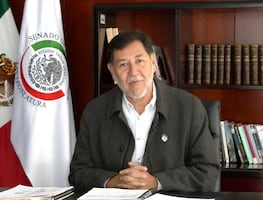In mid-July, the administration of Donald Trump gave an unexpected step: the number of temporary work visas increased for non-agricultural foreign workers. Instead of the traditional 66 thousand grants per year, in 2017 a total of 81 thousand will be issued. Good news not only for companies, who will have more options to fill their ranks with skilled labor but also for the hundreds of Mexicans who legally travel to the US each season to work.
The change in the H-2B program is a demand that the U.S. Chamber of Commerce has been fighting for, without much success and for a very long time. The pressure of American unions regarding the impact on the job market is strong. Yet, companies beg to differ, claiming it's hard to find workers for the tougher or more strenuous jobs. Nevertheless, applying for an H-2b work visa is a tedious process that considers many requirements. Precisely, one of them is to prove no American worker is interested in the job offer.
Infinity Labor Source is one of the main companies in the United States, based in Austin (Texas), focused on matching the necessities of American companies with Mexican labor. Through a telephonic call with EL UNIVERSAL , their business director, Henry Borrego, defends the posture of the companies and denounces the lack of local labor . “Most workers in the United States don't want to be on top of a roof or work in a garden at more than 43 degrees (…) No US worker wants that kind of job,” which forces companies to look outside the borders.
Only in the last month, more than 376 companies expressed their interest to the Department of Labor, to hire foreign workers due to a lack of national labor. Most of them, companies based in Texas and Florida, are hungry for workers willing to dedicate their time to the service, forestry or construction industry, or to fill positions requiring more technical skills, such as electricians. Shortage of visa grants is a burden the US carries since the implementation of such visa types in 1990. From that year on, a fixed number of permits has been granted: 66 thousand per year , divided equally into two seasons: April and October.
Critics have seen in Trump's decision as an attempt to win favor with their own national companies. Just four days after the instruction was given, Mar-a-Lago Resort (known as the Winter White House) applied for 76 visas for cooks, janitors, maids, and for menial tasks workers for their golf club.
“In order to meet and increase the services requested by our clients during the high season, we need personnel enough to match the demand, and that is why we invested again in the H-2B program,” stated the company in their formal application before the Department of Labor.
Setting aside the conflict of interests and the political agenda (and the possible contradiction with Trump's promise to “hire American”), the need of work in the US is real. “The Government and the people don't understand how hard it is for those companies to find workers for the jobs that need [visas],” explains Borrego, defendant of the belief that it is “necessary to increase significantly the number of [H-2B visas].”
Last year, the department received 143 thousand 311 H-2B visa applications, more than double the amount they can grant, and 13.6% more than in 2015.
“There are many companies that have been left out of the process this year,” says Borrego. An example is the shrimp industry in Texas, which depends exclusively on the Mexican workers coming arriving every season to board the ships willing to spend hours in them. This year, the Texas Shrimp Association requested 500 H-2B visas. They were granted none.
“Each time they don't get the visas or number of workers they need, they lose a significant amount of money,” Borrego explained. The shrimp industry in the United States estimates that the economic losses could reach a million dollars per day. The addition of 15 thousand new visas could save the season.
“Companies need these workers. How are they going to build their houses, mow their lawns? How are things going to get done if no one in the US wants to do them?” Borrego wonders.
To keep at it, the solution is to look outside the borders and there's where Mexico comes in. The unskilled Mexican worker meets all the requirements of the H-2B visa application.
“American companies love Mexican workers,” claims Borrego. Of Mexican descent, he sees his work as a way to do something positive for his “ compadres ”. “We help Mexicans to come here and find a legal job in the US,” he says with satisfaction.
The conditions offered aren't that bad: most companies seeking foreign labor offer housing, meals and even transportation and salaries above the average (established by the American Government). And in the case of a good performance, the chances of coming back the following season are high. “Mexican workers are good workers. They are highly regarded,” says Borrego.
am










